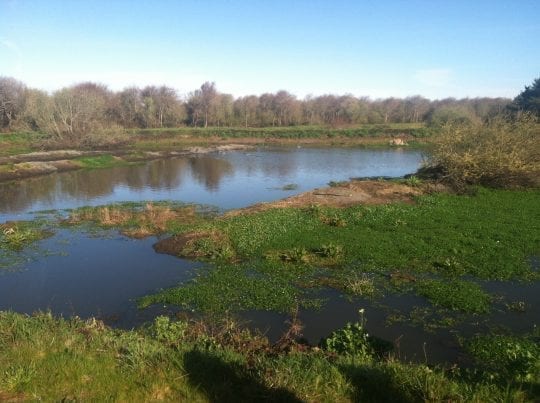California Trout is partnering with the McKinleyville Community Services District to pursue a salmonid restoration project along the banks of the Mad River in Humboldt County. Nearly four acres of sewer percolation ponds will be decommissioned and converted to coho salmon habitat. The ponds were previously used to dispose treated sewer wastewater. Restoration will involve connecting the ponds to the Mad River, providing a refuge for juvenile coho salmon to fatten up in calmer waters before they make their journey out to sea. This mimics naturally occurring backwaters.
Once restored, the river-front property which is owned by the District will provide much-needed estuary habitat on the Mad River and allows an opportunity to assess the irrigation potential of a riparian forest for treated wastewater disposal. Recreational hiking trails are also included in the restoration plan, enhancing public access to the scenic river and dune overlook.
This is a wonderful opportunity for agencies and municipalities to achieve multiple benefits for our water resources. “CalTrout works to achieve solutions to complex resource issues for the benefit of water, fish, and people,” stated Mary Burke, Program Manager for our North Coast office. “The Mad River Estuary Floodplain Restoration project is a great example of putting this work into action.”
Read more on the project from the Mad River Union, Coho salmon nursery moves forward in McKinleyville.





